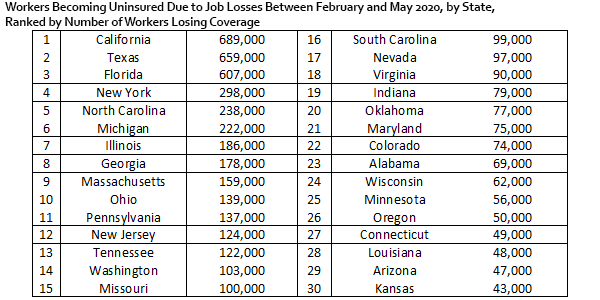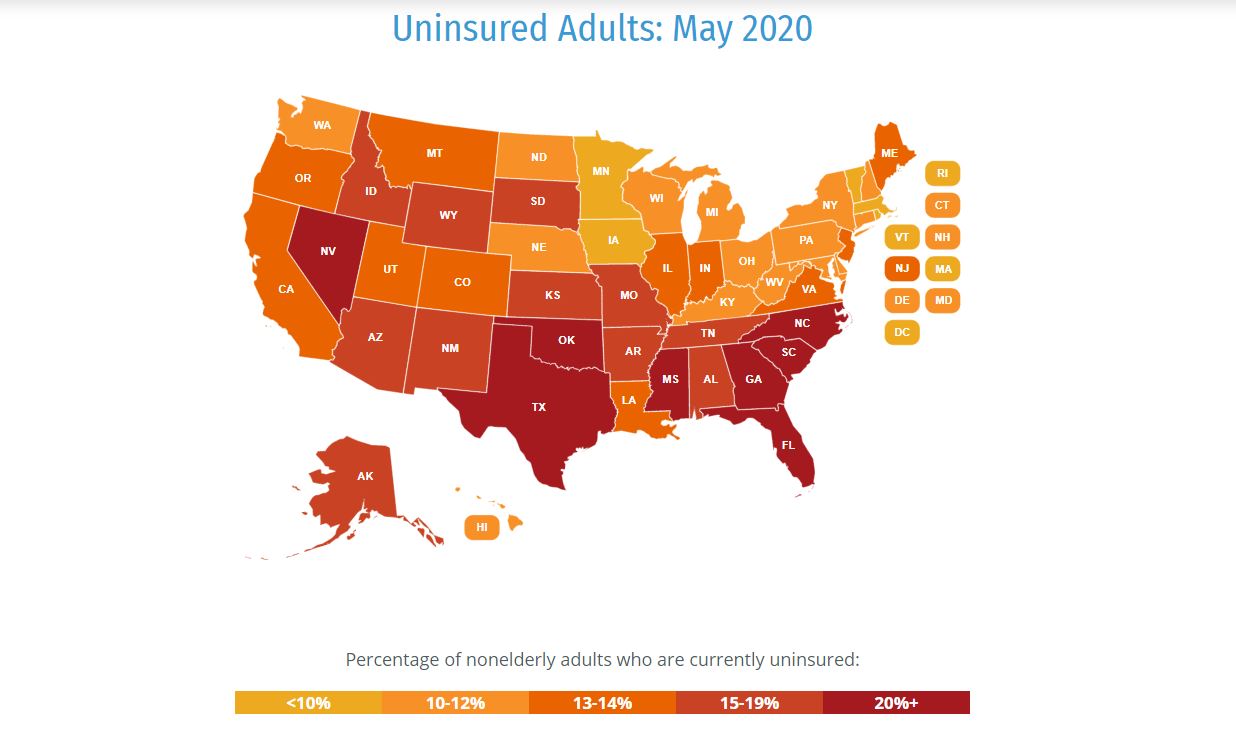

Written by Michelle Ries
As the COVID-19 pandemic continues, the scope of the impact continues to become clear. North Carolina, like much of the country, has seen significant impacts to employment. According to a recent brief from the Robert Wood Johnson Foundation, nearly 30 million Americans have filed for unemployment benefits through both federal and state support systems since the beginning of March. The North Carolina Department of Commerce reports a 7.9% unemployment rate for June 2020, compared to 12.7% in May 2020. While this is a welcome improvement, the rate of unemployed workers is still more than twice the 2019 rate of 3.7%.
For individuals and families who were insured through an employer-sponsored plan, lost income is compounded by the loss of health insurance coverage—a particularly critical protection in the current health crisis. Health policy experts have worried about this impact since business closures started driving unemployment, and new research is beginning to show the scope of the problem.
A report by Families USA released last week estimates that approximately 5.4 million American workers have lost health insurance due to unemployment since the start of the COVID pandemic. In North Carolina, an estimated 238,000 workers lost health insurance between February and May, the fifth largest number in the nation (behind California, Texas, Florida, and New York – all states with much higher populations). One in five non-elderly North Carolina adults now lack health insurance, compared to 12.9% in 2018.

Data is not yet available on the number of adults’ dependents (spouses, children, or adult children on parents’ insurance) who have lost insurance due to a family member’s unemployment, but with dependents included, the total number of North Carolinians now without health insurance is likely much higher than the 238,000 estimate.
Loss of health insurance coverage has significant implications for families’ abilities to access needed health care, including COVID treatment, as well as usual preventive care, chronic disease management, prescription drugs, and other services. For individuals and families who have lost both income and health insurance, even inexpensive care may prove cost-prohibitive, and major health needs may be financially catastrophic for families.

NCIOM has written previously about the available health insurance options for North Carolinians facing the loss of health insurance. While opportunities exist for continued coverage through existing programs, these options all have restrictions that may be exclusionary and costs that may not be accessible for those who have experienced substantial loss of income. As policymakers determine assistance for those impacted by COVID-19, they should consider options that address the health insurance needs of those who are recently unemployed.